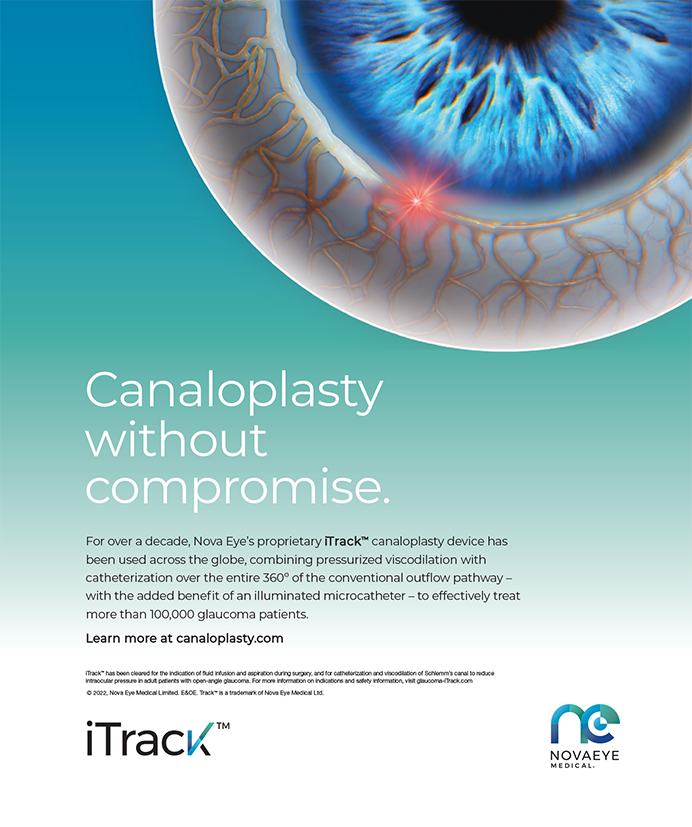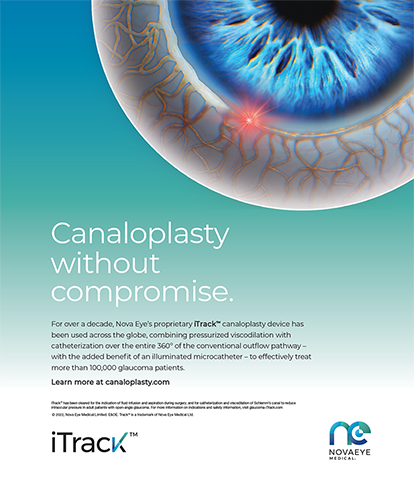Drs. Wiesinger and Kershner,
Thank you for opening up a long overdue discussion. Unfortunately, with your both taking polar positions with respect to the appropriateness of refractive surgery, little is gained, and no insight is achieved other than hearing your own personal biases.
We need more commentary on the following: Is refractive surgery being overutilized? Is any refractive error on a pristine eye fair game for the refractive surgeon? Is refractive surgery being sold to the public by many doctors who are ?making a market? and ?selling? the procedures to people hungry to fix what they perceive to be and what we encourage them to believe are visually challenged lives? Is it proper to recommend what is often a cosmetic fix among low refractive-error clients? (I hesitate to call such people patients.) Shall we be among those practitioners offering convenience, a better self-image, and questionable ?health? benefits while simultaneously ensuring a definite complication rate and a significant dissatisfaction rate? Is this truly within the purview of medical practice, and have we abided by our Hippocratic oath requiring us to do no harm? Have innumerable ophthalmologists demeaned themselves and our wonderful specialty as they are driven by financial incentive and necessity to aggressively promote and solicit customers? Granted, my comments apply to a small percentage of practitioners.
I fully understand and honor the medical contributions of mavericks and visionaries in our field. For anyone to suggest that the concerns noted earlier are akin to ?the head in the sand? orientation misses the point. To some degree, these are philosophical discussions that revolve around personal values; degrees of response to financial incentive; and where you think cosmetic surgery, body-part enhancement surgery, and lifestyle changes should appropriately fit into medical service. Certainly, such wonderful skills could be put to better use in a society with so many medically underserved individuals.
Few will deny that the financial reward for procedures not reimbursed by insurance has empowered this market. I would argue that it is not patient demand that spurs us on. We, not the public, are creating this steamroller. Just look at your yellow-pages advertisements, listen to a local radio station, and watch the billboards. Although many individuals with high refractive errors have had wonderful improvements in their visual capabilities, we must certainly recognize that many (I fear more than reported) have suffered permanent impairment to what was once excellent vision. Still others are unhappy or disappointed with their results. Personally, I find these outcomes less than acceptable for an elective procedure.
Dr. Weisinger must acknowledge the tremendous advantage given to many with refractive errors and the general success of refractive procedures. Dr. Kershner is aware of and should freely acknowledge the disservice done to significant numbers of patients who have entrusted their vision to us for these elective and arguably unnecessary procedures.
NEIEL BARONBERG, MDDenver
njbaron@frii.com
Dr. Baronberg,
One could argue the points you mentioned for an eternity, and I am not sure that we would come to a consensus. I do not believe that the positions in my article were “polar.” I wrote of the exciting endeavors to find a surgical treatment to correct presbyopia.
You ask, ?Is refractive surgery being overutilized?? Considering that more than 80 million Americans have significant refractive errors and only 4 to 5 million have had refractive surgery to date, I do not think so. ?Is any refractive error on a pristine eye fair game for the refractive surgeon?? Refractive surgery is not for everyone, and the penetration of this technology shows that it is still in its infancy.
?Is refractive surgery being sold to the public by many doctors who are ‘making a market' and ‘selling' the procedures to people hungry to fix what they perceive to be and what we encourage them to believe are visually challenged lives?? I cannot agree with this statement at all. Unfortunately, any procedure or product that has such potential to change lives can sometimes be sensationalized. Nevertheless, patients make their own decisions and, at least in my practice, are not talked into surgery. ?Is it proper to recommend what is often a cosmetic fix among low refractive-error clients?? No.
In conclusion, you state that I am “aware of and should freely acknowledge the disservice done to significant numbers of patients who have entrusted their vision to us for these elective and arguably unnecessary procedures.” I most certainly am not aware of the disservice done to “significant numbers of patients” by offering refractive services. Today's refractive procedures offer the hope of reducing the disability that many individuals, myself included, experience due to our daily dependence upon eyewear in order to function. Surgeons today have the power and technology to help others. How this technology is applied should remain the decision of highly trained and ethical individuals who have dedicated their lives to improving the vision of others. We have found the enemy, and it is from within. I think we need more pioneers.
ROBERT M. KERSHNER, MD, FACSTucson, Arizona


